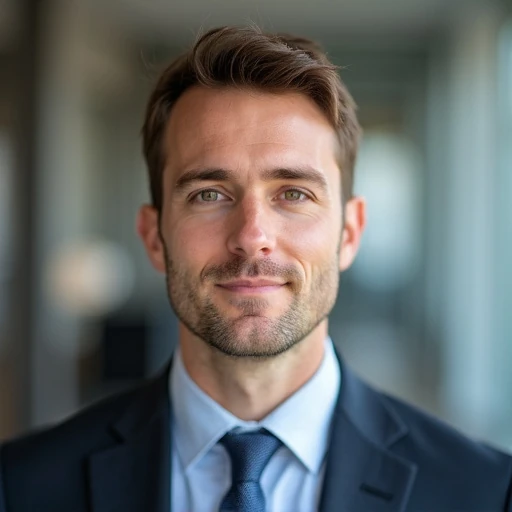Leslie Jacobs, a prominent and often controversial figure who was instrumental in reshaping New Orleans' public school system into an all-charter model after Hurricane Katrina, has returned to public advocacy. After stepping back in 2017, she has relaunched her nonprofit, Educate Now!, signaling a renewed engagement in the city's ongoing education debates.
Her re-emergence began in September with an email to followers of her organization. In it, she challenged the constitutionality of a city fee for collecting taxes on behalf of the school system, an issue she intends to pursue. This move indicates her readiness to once again influence education policy in New Orleans, a landscape that continues to face challenges such as declining enrollment and funding disputes.
Key Takeaways
- Leslie Jacobs, a key architect of the post-Katrina charter school system in New Orleans, has resumed her public advocacy role after a multi-year hiatus.
- She has revived her nonprofit, Educate Now!, and is initially focusing on a financial dispute between the city and the school district over tax collection fees.
- Jacobs' legacy is complex; she is viewed by some as a reformer who improved a failing system and by others as an architect of a top-down overhaul with limited community input.
- Her return raises questions about her potential influence on current issues, including school performance, enrollment declines, and the role of the Orleans Parish School Board.
A Prominent Figure Returns to Education Advocacy
After several years away from the public eye, Leslie Jacobs has formally announced her return to the New Orleans education policy arena. A former insurance executive, Jacobs dedicated three decades to education advocacy, becoming a central figure in the city's school reform movement.
In 2017, she closed her nonprofit, Educate Now!, and transitioned its career-readiness program into a separate entity, YouthForceNOLA. However, in a September email, Jacobs announced the revival of her original organization, which she called "Educate Now! 2.0."
"Here we are, twenty years after Katrina with New Orleans’ education story still unfolding, and I find there are new issues that need distilling and new information that needs to be disseminated," Jacobs wrote in her announcement. Her first declared issue is the city's practice of charging the school system a fee for tax collection, which she argues "is unconstitutional and must end."
Background: A System Transformed
Before Hurricane Katrina in 2005, the New Orleans public school system was plagued by low academic performance, financial bankruptcy, and widespread corruption. The storm's aftermath provided an opportunity for state leaders and advocates like Jacobs to implement a radical overhaul, leading to the nation's first all-charter school district.
Her return has been noted by key figures in the local education community. Caroline Roemer, Executive Director of the Louisiana Association of Public Charter Schools, acknowledged Jacobs' determined approach.
"When Leslie Jacobs decides she wants to get engaged, you better get ready, because she’s not playing around."
The Post-Katrina Overhaul and a Contentious Legacy
Leslie Jacobs' influence on New Orleans education is most strongly associated with the period immediately following Hurricane Katrina. As a member of the state Board of Elementary and Secondary Education (BESE) at the time, she was a major force behind the state's takeover of most of the city's public schools.
She successfully advocated for the state-run Recovery School District to assume control of the schools and for charter operators to manage them. This approach went against the advice of federal officials who, according to Jacobs, recommended reopening schools as a traditional district.
"We went against education advice ... to get them open right," Jacobs stated at a forum in August, recounting her decision to push for the charter model. She was instrumental in suspending laws that required parent and student votes for charter conversions and helped secure vital federal funding to keep schools operating when the city was shut down.
A Polarizing Reputation
Over the years, Jacobs' work has drawn both high praise and sharp criticism. Supporters credit her with dismantling a failed bureaucracy, while critics argue the transformation disregarded community voice and led to the mass firing of veteran, predominantly Black educators.
Former U.S. Senator Mary Landrieu described Jacobs as one of Louisiana's "earliest and most effective" advocates for charter schools. "Leslie Jacobs has been hugely impactful in education reform and the improvement journey, not only for New Orleans, but across the state," Landrieu said, noting that Jacobs helped change laws to create a system that "served children and not the bureaucracy."
However, many community members hold a different view. Alicia Plummer, a local advocate whose grandchildren attend public schools in the city, has been a vocal critic. She referred to Jacobs as "the face of this failed experiment" and believes she continues to operate behind the scenes. "She’s the wizard behind the curtain," Plummer said.
A Quiet Period of Continued Influence
While Jacobs formally stepped back from public advocacy in 2017, she never entirely disengaged from New Orleans education. She remained active on the board of YouthForceNOLA and other local nonprofit organizations.
Her influence also continued through political contributions. Records show she has donated to the campaigns of school board candidates who support the charter school model. In the most recent Orleans Parish School Board election, she contributed to two such candidates.
Even without a formal public platform, Jacobs has been a source of information for public officials. New Orleans City Council member Joe Giarusso confirmed he spoke with her while negotiating a since-abandoned settlement between the city and the school district over the tax collection dispute. "I also spoke with Leslie," he said, "because I thought she has deep knowledge of these issues and had no political objective in giving her views."
New Focus on School Finance and Operations
With the relaunch of Educate Now!, Jacobs is already taking public stances on pressing issues. Her immediate focus extends beyond the tax collection fee to the direct operations of the school district. She has offered a sharp critique of the Leah Chase School, the only traditional, non-charter public school currently run by the district.
On her organization's website, Jacobs pointed to the school's reported $500,000 operational deficit, calling it a drain on district resources. She described the school's academic performance as "mediocre" and urged the Orleans Parish School Board (OPSB) to take action.
Her recommendations for the school include:
- Placing it "on a level playing field" with charter schools.
- Allowing another school operator to use its campus.
"It is time for OPSB to remedy this situation,” she wrote, demonstrating her intent to scrutinize the district's performance and financial management directly.
The Future of New Orleans Schools
Jacobs' return comes as the New Orleans school system navigates a more stable but still challenging period. The intense conflicts of the post-Katrina years have subsided, but significant issues remain. These include a city-wide decline in school enrollment, ongoing funding debates, and the fundamental question of whether the school board should directly manage more schools.
In a recent interview, Jacobs stated that her reflections on the upcoming 20th anniversary of Hurricane Katrina motivated her to re-engage publicly. She explained that she wants to help guide the city's schools through their next chapter.
"The growth we had was remarkable, but the question is how do we keep growing,” she said. “I’d like to be part of that conversation.” The extent of her influence in this new era remains to be seen, but her history as a determined and powerful advocate suggests her voice will be a significant factor in shaping the future of education in New Orleans.





